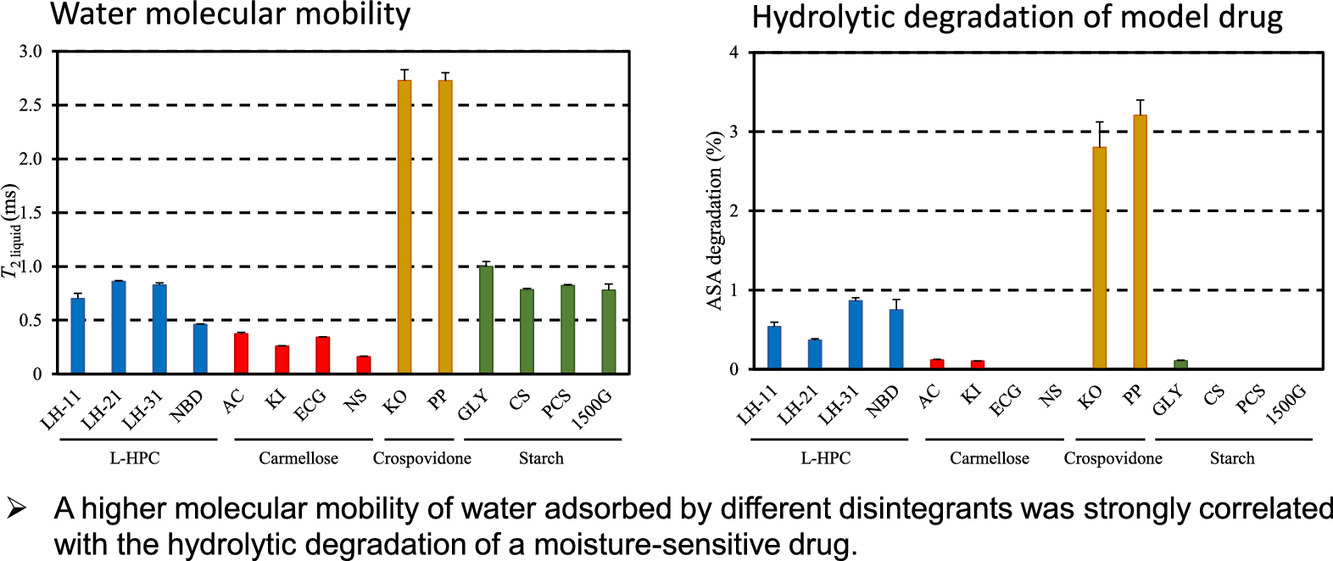Effect of the molecular mobility of water adsorbed by disintegrants on storage-induced hydrolytic degradation of acetylsalicylic acid incorporated into tablets under humid conditions

The purpose of this study was to investigate the effect of molecular mobility of water adsorbed by disintegrants on the hydrolytic degradation of active pharmaceutical ingredients (APIs). Fourteen different disintegrants were tested. First, powdered disintegrants were stored at conditions of 40 °C/75% relative humidity (“humid conditions”) and their T2 relaxation times were measured by time-domain nuclear magnetic resonance for examination of the molecular mobility of water adsorbed by the disintegrant. From the observed T2 values, the water molecular mobility was fully characterized.
In particular, the molecular mobility of water adsorbed by crospovidones was much higher than the molecular mobility of water adsorbed by the other test disintegrants because of longer T2 values. The next study examined the hydrolytic degradation of acetylsalicylic acid (ASA), a model moisture-sensitive API, stored under humid conditions. Physical mixtures of ASA and disintegrants or their model tablets were used as test samples, and they were stored for 7 d. The disintegrants contained in the samples clearly affected the ASA degradation: the most significant ASA degradation was observed for the crospovidone-containing samples.
Finally, we analyzed the effect of the molecular mobility of water adsorbed by disintegrants on the ASA degradation by the least absolute shrinkage and selection operator (Lasso) regression techniques. As in the T2 experiment, various properties of disintegrants (i.e., water content, pH, and water activity) were used in this experiment as the explanatory variables. From the Lasso analysis, we successfully showed that the higher molecular mobility of water adsorbed by disintegrants significantly enhanced ASA degradation. These findings provide profound insights into the chemical stability of moisture-sensitive APIs in tablets. Continue on Effect of the molecular mobility of water adsorbed by disintegrants
Keywords Water molecular mobility, Disintegrant, Water adsorption, Hydrolytic degradation, T2 relaxation time, Time-domain nuclear magnetic resonance, Tablet, Low-substituted hydroxypropyl cellulose, L-HPC, croscarmellose sodium Ac-Di-Sol®, KICCOLATE™, Carmellose calcium, carmellose NS-300® , crospovidones Kollidon® CL-F and Polyplasdone™ XL-10, Sodium starch glycolate GLYCOLYS® , Corn starch, partly pregelatinized starch: PCS® and Starch 1500®G, D-mannitol (Parteck® M200), Microcrystalline cellulose (CEOLUS® UF-711), Magnesium stearate

